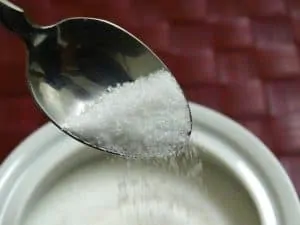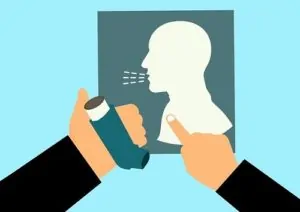Archives

Xylitol: 101
While xylitol is yet another sugar substitute, it’s actually quite different from many others available at your local grocery store. First of all, xylitol is natural — it’s found in fruits, veggies, and even in our bodies during digestion. Second, xylitol tastes like sugar but doesn’t act like sugar once it’s in our bodies. This means you can still have a sweet treat without all of the negative side effects of actual sugar. You see, sugar is pretty harmful to our overall health. It can spike blood glucose levels and, over time, cause difficulties with your metabolism. This may result in weight gain or make it difficult to lose weight. Xylitol, on the other hand, is low in calories (it has 40% fewer calories than sugar!) and has a low glycemic index. As a result, blood glucose levels are nearly unaffected by xylitol, and bodies are protected. But that’s not all. As your dentist in Sparks knows, xylitol may protect oral health, too.
The Protective Power of Xylitol
We already know that xylitol is a healthier alternative to sugar and can protect our bodies. But the oral benefits of xylitol are also plentiful. Chewing gum that contains xylitol may:
- Prevent tooth decay
- Starve bacteria
- Prevent oral inflammation
- Reduce your risk of gum disease
- Remineralize teeth
- Increase saliva production
- Reduce the acidity of your saliva
- Help with calcium absorption
How does xylitol do all of that? We’re glad you asked.
Essentially, xylitol starves a dangerous bacteria commonly found in our mouths called Streptococcus mutans. These bacteria love to feed on sugar as it gives them fuel and allows them to multiply, which is a big problem. Streptococcus mutans is the main cause of plaque buildup, and when there are too many Streptococcus mutans, there’s probably also too much plaque. The result? An increased likelihood of developing cavities. But when we replace sugar with xylitol, we see a much different result. Streptococcus mutans bacteria will still feed on the xylitol, but instead of fueling the bacteria, xylitol actually starves them and they start to die. This means fewer bacteria and a lower risk of decay.
Even though chewing xylitol gum can go a long way in protecting teeth, it is not a replacement for good old-fashioned oral hygiene. Yes, gum can freshen breath, and yes, xylitol can help prevent decay, but if you don’t brush and you don’t floss, and if you don’t see your dentist in Sparks regularly, chances are xylitol won’t be enough to protect your teeth.

What’s Dentistry Got To Do With It?
Asthma affects 1 in every 13 Americans, or close to 25 million people just in our part of the world. This life-long condition affects the respiratory system and can cause shortness of breath, wheezing, coughing, and chest tightness. It’s a very serious condition that can be treated, but if it’s not treated properly or quickly enough, it can lead to death. So how exactly does this relate to dentistry?
- Mouth Breathing
People with asthma tend to have a hard time breathing and feel as if they can’t get enough oxygen with each breath. Because of this, many asthma patients will breathe out of their mouths instead of their noses, since they can get more air into the lungs this way. However, your dentist in Sparks wants you to know that mouth breathing doesn’t come without risks. Mouth breathing can reduce saliva amounts, as well as the body’s ability to produce more saliva, resulting in dry mouth. Dry mouth is an oral health condition that may seem like only a minor, uncomfortable nuisance, but the truth is dry mouth can increase the risk of decay, cavities, bad breath, and gum disease. Usually, saliva will rinse away bacteria and neutralize acids in the mouth, protecting teeth against their damaging effects. However, when a mouth is too dry to do this, bacteria and acids can attack teeth, resulting in decay. Additionally, when bacteria are left to linger around, it can lead to bad breath.
- Asthma Treatments
Similar to mouth breathing, many asthma treatments, such as inhalers, also cause dry mouth. As we know, a dry mouth is a perfect environment for bacteria and acids to cause damage. If patients do notice a dry mouth after taking their medication, they should talk with their doctor and dentist in Sparks to find ways to relieve dry mouth. Never stop taking a medication without first consulting with your physician.
What You Can Do
There is some good news for asthma patients who are dealing with dry mouth as a result of either medication or mouth breathing. There are things you can do decrease your risk of oral health problems such as:
- Staying Hydrated. Water is one of the most important things for everyone, whether they’re an asthma patient or not. Drinking enough water throughout the day helps keep the mouth moist and helps to wash away bacteria and food particles as well as neutralize damaging acids.
- Rinsing With Water. A quick rinse of water after taking asthma medication will help get rid of any ingredients that contribute to dry mouth so they aren’t left lingering around all day. The more remnants of medication you can remove, the lower the chance of dry mouth.
- Talking to Your Dentist. Your dentist is a part of your healthcare team and needs to know about any health conditions you have, including asthma. Knowing your health history helps your dental team customize treatment for you and notifies them to be on the lookout for any oral health concerns that may result from other health problems in the rest of the body.
As always, the best ways to protect oral health against decay, bad breath, and gum disease are to brush and floss every day and to see your dentist in Sparks every six months for checkups and professional cleanings, whether you’re an asthma patient or not.
